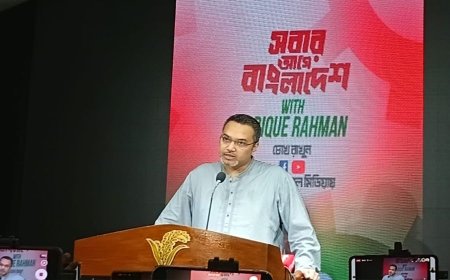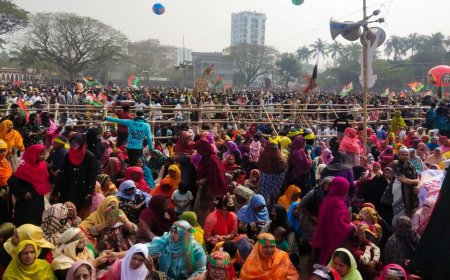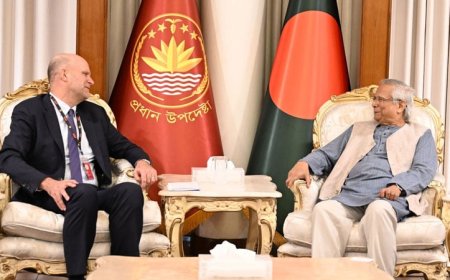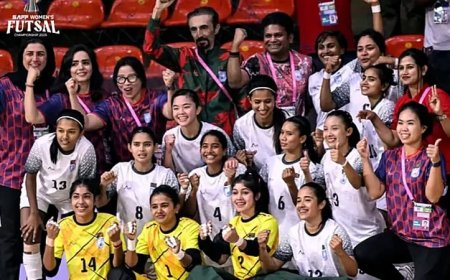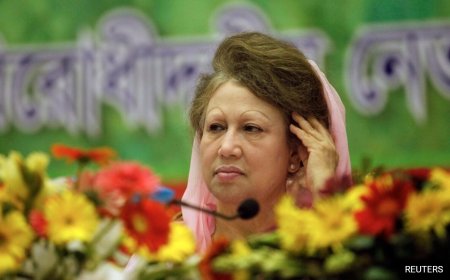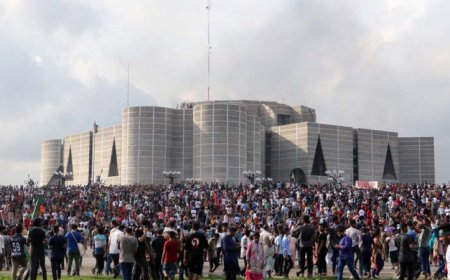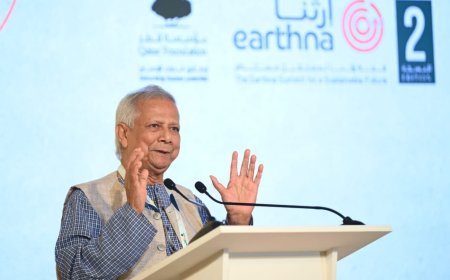Hasnat and Sarjis have filed a writ petition requesting a ban on the Awami League
Hasnat and Sarjis have filed a writ petition requesting a ban on the Awami League
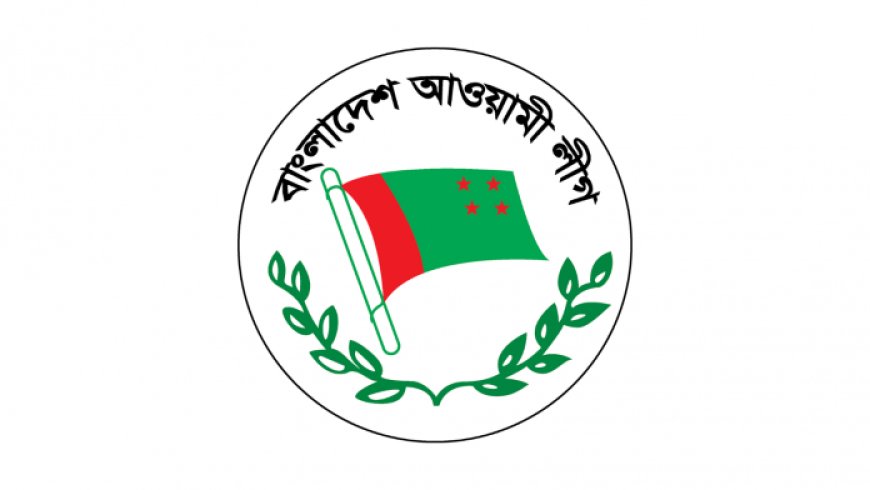
Earlier this month, the interim government released a gazette announcing a ban on the Chhatra League, the student wing of the Awami League
The article discusses recent legal and political actions in Bangladesh concerning attempts to ban the Awami League, one of the country's major political parties, and its student wing, the Chhatra League. Here’s a breakdown of the main points:
1. Writ Petition to Ban Awami League
Petition Filed by Student Activists: Hasnat Abdullah, who leads the Anti-Discrimination Student Movement, and Sarjis Alam, a central coordinator for the organization, have filed a writ petition in the High Court of Bangladesh. This petition seeks a court order to ban the Awami League as a political party and calls for a halt to all of its political activities.
Legal Review Pending: The petition is scheduled to be reviewed by a High Court bench comprising Justice Fatema Najib and Justice Sikder Mahmudur Razi, who may hear arguments and decide whether the petition has legal grounds to proceed or to grant the ban.
2. Government Action Against Chhatra League
Chhatra League Ban: The article notes that, on October 23, the interim government issued an official gazette (a government document used to formally announce policy decisions) that banned the Chhatra League. The Chhatra League is the student wing of the Awami League and has historically been involved in campus politics across Bangladesh.
Designation as a “Terrorist Organization”: In this gazette, the interim government designated the Chhatra League as a "terrorist organization," indicating that it holds the group responsible for violent activities that allegedly disrupt social and political order. This formal designation is significant, as it labels the organization as an entity with harmful intent, and effectively outlaws its operations.
3. Background and Pressure from Student Movement
Ultimatum by Anti-Discrimination Student Movement: The Anti-Discrimination Student Movement, led by Hasnat Abdullah and other activists, had previously issued a warning to the government, demanding the ban of the Chhatra League. This shows that there has been a mounting campaign by certain student groups to pressure the government into taking action against the Chhatra League and potentially the Awami League itself.
4. Previous Legal Efforts to Ban Awami League
Earlier Petition Rejected: Prior to the recent petition, a similar legal attempt was made to ban the Awami League. On September 1, a different petition was filed, seeking a ban on the Awami League and the cancellation of its electoral registration. This earlier petition claimed that the Awami League was involved in violent incidents during a recent student-led movement.
Legal Representation and Court Decision: In that case, the state was represented by Attorney General Md Asaduzzaman, who argued against the petition, while Arifur Rahman Murad Bhuiyan represented the petitioner. On September 1, the High Court dismissed this initial petition, indicating that it did not find sufficient legal grounds to proceed with a ban on the Awami League.
5. Context of the Initial Petition
Filed by a Human Rights Group Leader: The initial petition was submitted on August 19 by Arifur Rahman, executive director of SARDA Society, a human rights organization in Bangladesh. The petition aimed to challenge the Awami League's legitimacy due to alleged violent actions.
Preliminary Hearing and Government Stance: During a preliminary hearing on August 27, the attorney general argued that the interim government had no intention of banning political parties. The court was urged to dismiss the petition, and it ultimately did so in early September.
Implications of the Current Petition and Bans
Political Tensions: These legal actions and government bans highlight an intense political climate in Bangladesh, where student movements and civil society groups are pushing against the Awami League’s influence. The efforts to ban the party and its affiliates reflect broader political and social discontent, especially among student activists.
Potential Impact on Political Landscape: If the new petition is accepted and the Awami League faces restrictions, it could lead to significant shifts in Bangladesh’s political landscape. The designation of the Chhatra League as a “terrorist organization” also raises concerns about student-led political groups and their future role in Bangladeshi politics.
In summary, the current petition to ban the Awami League adds to ongoing tensions and reflects a broader movement challenging the party’s influence. Whether this petition will proceed remains uncertain, but the recent ban on the Chhatra League indicates the government’s readiness to regulate political and student groups amid rising opposition.
What's Your Reaction?







